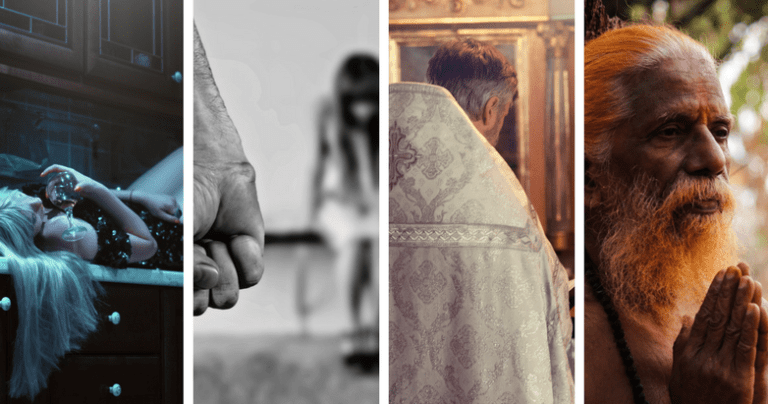
Morality is an interesting subject. I have read numerous articles by sociologists over the years and, by their estimates, we have yet to find a culture or tribe anywhere on Earth that operated without restraints. If humans ever endorsed total permissiveness, that social structure has left no remnants.
Why is this? Why do the religious and nonreligious alike put an emphasis or morality?
I think it is important to think about those questions before we make any moral demands of ourselves or others. We must make an effort to understand what we are dealing with.
Mix of Divinity and Dirt
I believe that the answer lies in us. We are a strange mix of divinity and dirt, aspirations and primal instincts, better angels and the animal within.
The primitive nature of the body is lustful, greedy and prone to violence. I listened to a Vietnam veteran on TV not long ago who said that people have it backward when they say that war creates violence. In his mind, war is like finishing school for an already violent species.
But human beings are also wired for cooperation and kindness. If healthy, a human being will thrive in a loving and cooperative environment.
Restriction and Aspiration
Because of those opposing forces, we are speaking of two things when we speak of morality.
One is restriction, trying to rein in everything that can cause damage, both internal and external, from angry and fearful emotions to greedy, violent, and lustful behavior.
The other is aspiration, cultivating of the seeds of Goodness, including love, compassion, generosity, and kindness.
Most religious systems were created hundreds or even thousands of years ago. Back then, human behavior was very different from what it is today. There was much more violence and strife. War was the normal state, not the exception.
Under those circumstances, a moral emphasis was placed on restrictions and restraint. No lying, no stealing, no murdering, and, because it so disturbed the peace in society and usually led to violence, no adultery.
All faiths created similar boundaries, and, today, many of those same restraints are found in the modern justice system, making it so that we take them for granted.
Aspiration was on the other side of the coin. Depending on traditions, practitioners were encouraged to honor their elders, respect their teachers, be good, do good, give with joy, cultivate faith, nurture love, turn the other cheek, and so on.
Two Common Problems with Morality
These two different approaches to morality created two common problems.
Those partial to restrictions sometimes went overboard in their designation of restrictive behaviors and gave birth to puritanism. A moral life could only be achieved by not doing. Natural behaviors, such as sex and eating, were often completely restricted.
Of course, such restrictions eventually caused a backlash, because natural elements can only be guided never repressed. No matter how high a dam you build, it will either overflow or break if there is no outlet for the natural element of water. The same is true of natural human inclinations. There has to be a safe outlet.
On the other side, those who were partial to aspirations became oblivious to the animal within and started preaching theologies of holiness, claiming that the so-called lower human dispositions could be completely transcended. They mistook the temporary transcendence of the mortal world and direct experience of Spirit as a fixed state that could be maintained.
Not everyone has been so blind. Zen reminds us that after enlightenment we continue to chop wood and carry water. We are mortal and subject to human limitations. Even after we experience the Divine, we are still comprised of dirt.
The Paradox Creates a Continual Dance
Morality is a continual dance between these two forces of restrictions and aspirations.
On one end, we must honor the needs of the animal within but never allow it to assume full control of our life.
On the other end, we can allow ourselves to aspire and work towards coming become better than we are, but we must never fall into the trap of claiming holiness. Even if we temporarily transcend the flesh, we still have to live in the flesh. We can achieve progress but never perfection.
This dance is the paradox of morality.
Gudjon Bergmann
Author & Interfaith Minister
Pictures: Pexels.com and Pixabay.com CC0 License












